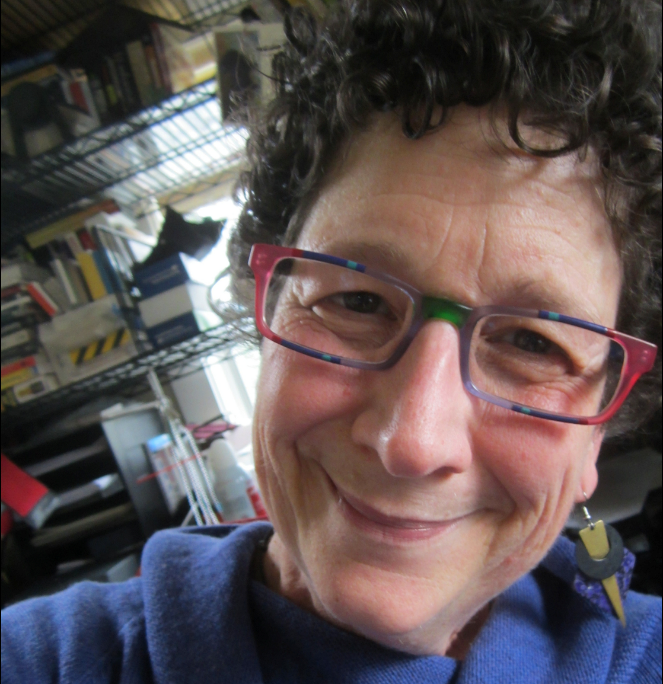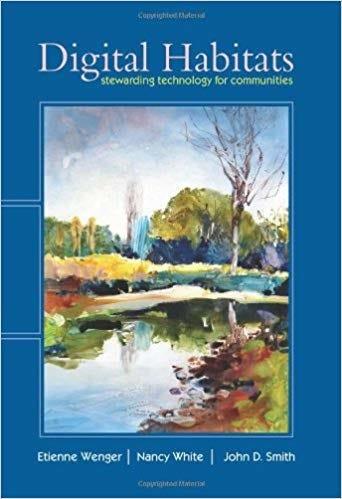Lucidea’s Lens: Knowledge Management Thought Leaders Part 59 – Nancy White

Stan Garfield

Nancy White is the founder of Full Circle Associates, her consulting practice that includes an extensive network of professionals.
She is a frequent contributor and a past core group member of KM4Dev, a global networked community of international development practitioners interested in knowledge management and knowledge sharing issues and approaches, who seek to share ideas and experiences in this domain.
Nancy is a leading thinker, writer, and practitioner of online facilitation (group facilitation for distributed environments). She supports distributed learning, teams, and communities of practice, where technology is just the tip of the iceberg. She believes that organizational capacity and strong processes are the links to success.
Nancy supports communications for NGOs, NPOs and community organizations, thinking in, out, around, and beside the box. She offers fresh ideas and practical plans for implementation.
Her specialties include online interaction strategic planning, design, execution, online facilitation, training, NPO/NGO knowledge sharing/management, strategic communications framing, issue communications, project management, and chocolate tasting.
Digital Habitats: Stewarding Technology for Communities with Etienne Wenger and John D. Smith

Improving cross-disciplinary collaboration with strategy knotworking and ecocycle planning
I have used the six knotworking questions plus ecocycle planning from Liberating Structures to make it possible for a group to look back critically, assess the current state, and prospectively generate options to move forward.
The six knotworking questions are:
- What is the fundamental purpose of our work (as individual projects and as a portfolio)?
- What is happening around us that demands change?
- What are the critical uncertainties and paradoxes we must face to make progress?
- Where are we starting, honestly?
- Based on what we have discovered, what is now made possible?
- What are our next steps and how will we know we are making progress?
From answering the six questions, a shared language evolves. Fresh ideas across portfolios of work within or across funded programs come into focus. Relationships form and deepen creating space for peers to ask for and offer specific help. Teams can more easily refer to issues across different contexts for optimization. Emergent ideas can be supported across portfolios of grant-funded projects.
What shows up repeatedly is how silos become more permeable and even networked. Two aspects of knotworking seem most useful in this context:
- Action and learning entwined
- Exploring together generates new options

Stan Garfield
Enjoy Stan’s blog posts offering advice and insights drawn from many years as a KM practitioner. Learn about Lucidea’s Presto, a single knowledge curation venue for managing, finding and sharing organizational knowledge resources. Presto makes it easy to connect people with the information they need, so they can spend less time searching and more time doing.
Never miss another post. Subscribe today!
Similar Posts
The LEXICON Framework Part 4: Integrate with Existing Systems
Stan Garfield explores practical ways to embed KM tools into the platforms your team already uses reduces friction, boosts adoption, and makes organizational knowledge easier to access.
The LEXICON Framework Part 3: 10 Ways to eXplain the Value of Knowledge Management
KM expert Stan Garfield offers 10 practical ways to explain and prove the value of knowledge management using Clare Bilobrk’s LEXICON framework.
The LEXICON Framework Part 2: Empower Champions of KM
In part two of our LEXICON series, we explore how empowering KM champions can strengthen knowledge management adoption. Discover practical strategies to identify champions, define their roles, and connect them across your organization.
The LEXICON Framework Part 1: Link KM to Daily Workflows
Stan Garfield explores the LEXICON framework for KM, sharing 16 strategies to embed knowledge management into daily workflows effectively.




Leave a Comment
Comments are reviewed and must adhere to our comments policy.
0 Comments